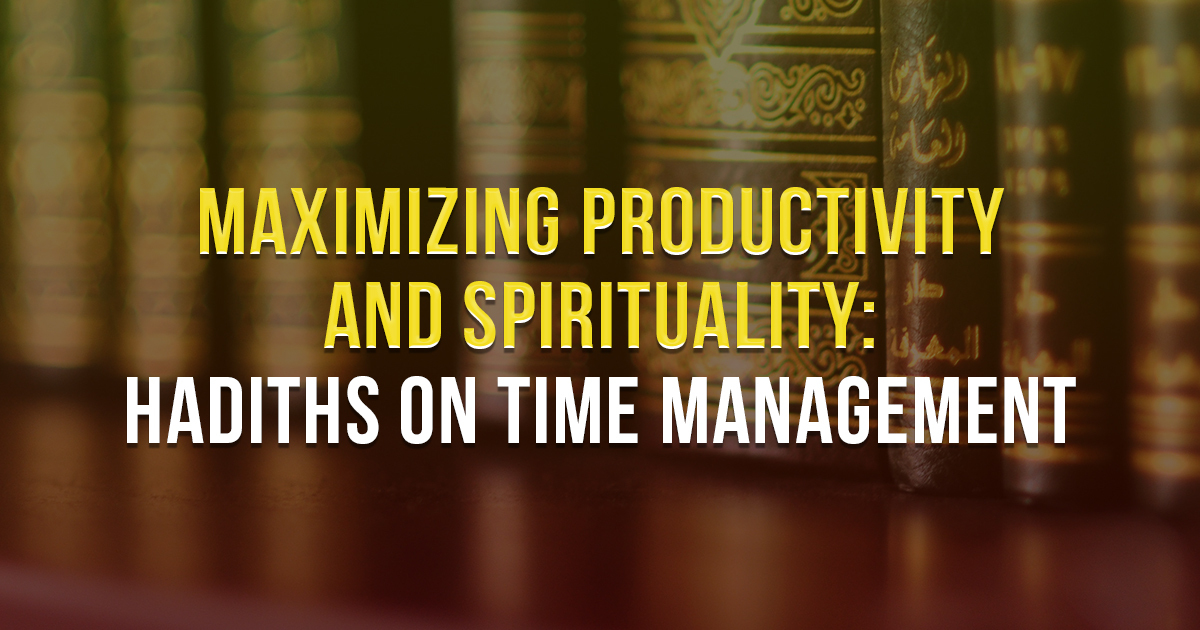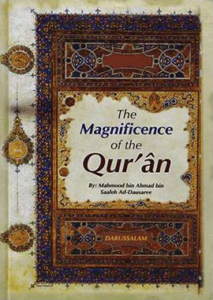In today’s fast-paced world, effective time management is a skill coveted by many, yet mastered by few. For Muslims, time management isn’t just a secular skill—it’s a spiritual pursuit. The Sunnah of the Prophet Muhammad (PBUH) is replete with timeless hadiths that not only encourage productivity but also endorse a life of balanced spirituality.
In this blog by Darussalam UK, we explore how hadiths can lead to better time management, providing an unmatched blend of productivity and spiritual growth.
The Essence of Time in Islam
The Islamic perspective views time as a precious resource entrusted to us by Allah, to be utilized for our development and the betterment of society.
Valuing Every Moment: Hadiths That Teach Time Appreciation
Divine Allocation: Islam teaches that time is allocated by Allah and holds opportunities for good deeds.
Responsibility and Accountability: Each moment confers a responsibility as echoed in the hadith, “There are two blessings which many people lose: (They are) health and free time for doing good” (Bukhari).
Read More: Time Management in Islam
The Prophet’s Guidance on Time Management
Prophet Muhammad (PBUH) provided invaluable advice on managing one’s time effectively. His lifestyle serves as a template for balancing worship, work, and community life.
1. Prioritizing Tasks
Hadith: “The Prophet (PBUH) said, ‘Do the most important work first’” (Ibn Al-Qayyim).
Modern Application: Start your day with the most vital tasks, often the ones that contribute to your spiritual and worldly goals.
2. Avoiding Procrastination
Hadith: “Take advantage of five before five: your life before your death, your health before your sickness, your wealth before your poverty, your youth before your old age, and your free time before your preoccupation” (Al-Hakim).
Productive Habits: This hadith encourages immediate action and appreciation for the current state of well-being and opportunity.
Planning and Delegation According to Sunnah
The Prophet Muhammad (PBUH) not only advocated for efficient usage of time but demonstrated strategic delegation and planning.
Effective Delegation
Example from Seerah: The Prophet (PBUH) would assign tasks according to their companions’ strengths, thus managing his time and that of his companions efficiently.
Contemporary Adaptation: Identify and utilize each individual’s strengths in team projects or family responsibilities to improve collective productivity.
Strategic Planning
Hadith on Intention: “Actions are (judged) by motives (niyyah), so each man will have what he intended” (Bukhari and Muslim).
Making Action Plans: Align your daily schedule with clear intentions. This strategic mindset ensures that every action is purposeful.
Explore: Best Hadith Books
Time Management for Spiritual Growth
Spirituality and personal development are central to the Islamic way of life. Hadiths guide us to structure our time to nurture the soul.
1. Integrating Worship into Daily Routines
Regularity in Worship: The Prophet (PBUH) emphasized consistency in good deeds, no matter how small (Muslim).
Scheduling for Spirituality: Include daily acts of worship—prayer, Quran reading, dhikr—in your schedule as non-negotiables.
2. Reflective Downtime
Hadith: “The Prophet (PBUH) would divide his time according to the need, dedicating a portion exclusively for Allah, a portion for family, and a portion for personal needs” (Tabari).
Self-Care and Reflection: Allocate time for self-care and reflection, which can improve overall productivity and contentment.
Balancing Worldly Work with the Hereafter
In Islam, the concept of productivity extends beyond worldly work to include preparation for the afterlife.
1. Philanthropy and Social Contributions
Charitable Acts: The hadith about the value of continuous charity (sadaqah jariyah) instructs Muslims to invest time in acts that provide ongoing benefits (Muslim).
Allocating Time for Others: Dedicate time for volunteering or supporting community projects.
2. Seeking Knowledge
Continuous Learning: The pursuit of knowledge is highly esteemed, with the Prophet (PBUH) encouraging it as a way to make the best use of one’s time (Tirmidhi).
Harnessing the Prophetic Model for Modern Time Management Challenges
In a world brimming with distractions and responsibilities, traditional Islamic teachings offer a template for overcoming contemporary time management challenges.
Embracing Early Mornings
Prophetic Tradition: Engaging in morning worship and starting work early, as ‘blessed’ (barakah) time is often found in the early hours (Muslim).
Practical Takeaway: Capitalize on the calm and clarity of the morning for high-focus tasks.
Technology with Intention
Mindful Use: While not present in the Prophet’s (PBUH) era, the principle of intentionality can extend to our use of technology— ensuring it serves a purpose in our lives without becoming a source of constant distraction.
Digital Discipline: Scheduled times for checking emails and social media can prevent the digital sphere from consuming valuable time better spent on personal growth and community engagement.
Routine and Consistency
Importance of Sunnah: The Prophet (PBUH) maintained a consistent daily routine, which added structure to his life and the lives of those around him.
Application for Success: Establish a routine that aligns with Islamic values and stick to it, ensuring a balance between work, worship, and rest.
Infusing Every Moment with Mindfulness and Purpose
The teachings of Islam not only instruct us to be thoughtful about how we use our time but also to infuse each moment with presence and intention.
Mindfulness in Acts of Worship
Conscious Presence: Being fully present during acts of worship maximizes spiritual benefits and personal discipline which then translate into other areas of life.
Quality Over Quantity: The hadith which states that “The most beloved deed to Allah is the most regular and constant even if it were little” (Bukhari) suggests that consistency is key to long-term success.
Setting Intentions for Daily Tasks
Niyyah for Worldly Tasks: Applying the concept of niyyah to work and family responsibilities ensures that even mundane activities have a higher purpose.
Aligning with Sharia: By aligning actions with Sharia, the daily grind is transformed into a series of intentional and spiritually rewarding deeds.
Conclusion: Enriching Time with Prophetic Wisdom
Through the wisdom of Islam and the example of the Prophet (PBUH), we can manage our time in ways that fulfill our responsibilities to Allah, our community, and ourselves.
The lessons from the hadiths offer more than just ancient wisdom—they offer a model for a structured, purposeful, and productive life. By emulating the Prophet’s (PBUH) time management practices, we can achieve a fine balance that nurtures both our worldly ambitions and spiritual duties.
FAQs About Time Management in Islam
How can the hadiths on time management improve my daily productivity?
The hadiths on time management can teach discipline, intention, and prioritization, improving focus and productivity in daily tasks.
What role does intention play in managing time effectively in Islam?
Intention (niyyah) acts as the driving force behind actions in Islam, bringing purpose to time management and ensuring that tasks align with spiritual and ethical goals.
Can time management improve both my work and spiritual life?
Yes, time management can enhance work efficiency and provide dedicated time for worship and self-improvement, leading to a balanced life.
How can I avoid wasting time according to Islamic teachings?
Islamic teachings recommend utilizing moments for beneficial activities, avoiding excessive leisure or idle talk, and focusing on acts that bring about good in this life and the next.
Is it important to schedule time for worship separately from daily tasks?
While integrating worship into daily tasks is beneficial, it’s also important to set aside undisturbed time for worship to ensure the quality and focus of spiritual practices.
How can Muslims balance their work-life with spiritual commitments during Ramadan?
During Ramadan, work schedules might be adjusted to accommodate fasting hours, and breaks can be utilized for short periods of rest or Dhikr. Prioritizing tasks and planning around Taraweeh and other Ibadahs can maintain a balance.
Are there specific Duas or supplications for increasing time management effectiveness?
Yes, Muslims can recite Duas such as “Allahumma barik li fi waqti wa amali” (O Allah, bless me in my time and my work), seeking Divine assistance for better utilization of time.
How does the concept of ‘Barakah’ relate to time management?
‘Barakah’ is a concept of spiritual blessings that can be invoked for time. When one’s time is infused with Barakah, it is believed to be more fruitful, allowing one to accomplish more with less.
Can the principles of time management in Islam apply to non-Muslims?
Absolutely. The principles of prioritization, intentionality, discipline, and balance are universal concepts that can benefit anyone seeking to improve their time management skills.
How does engaging with community activities tie into Islamic time management?
Community activities are encouraged in Islam as they build brotherhood and societal bonds. Allocating time for such acts is part of the Prophetic model which values serving and supporting the community.











